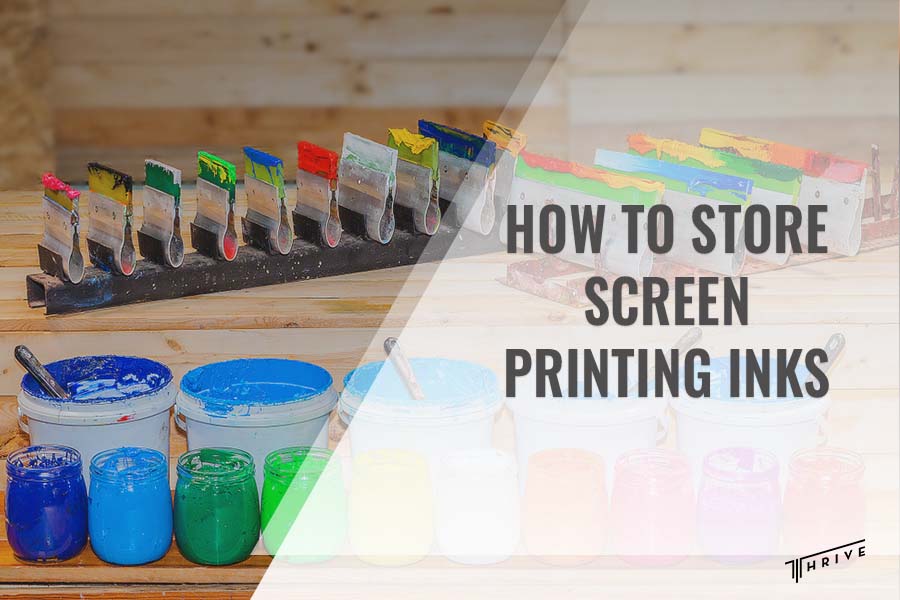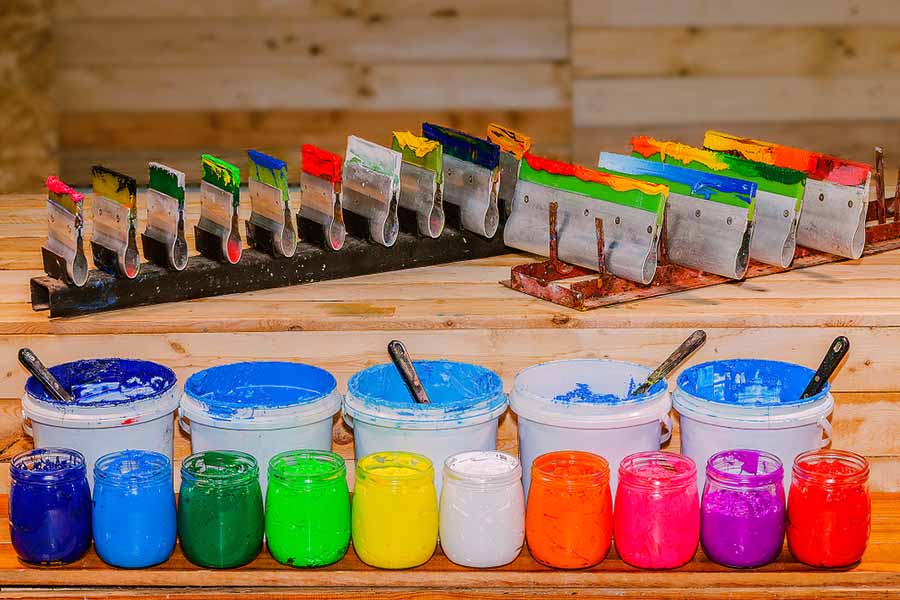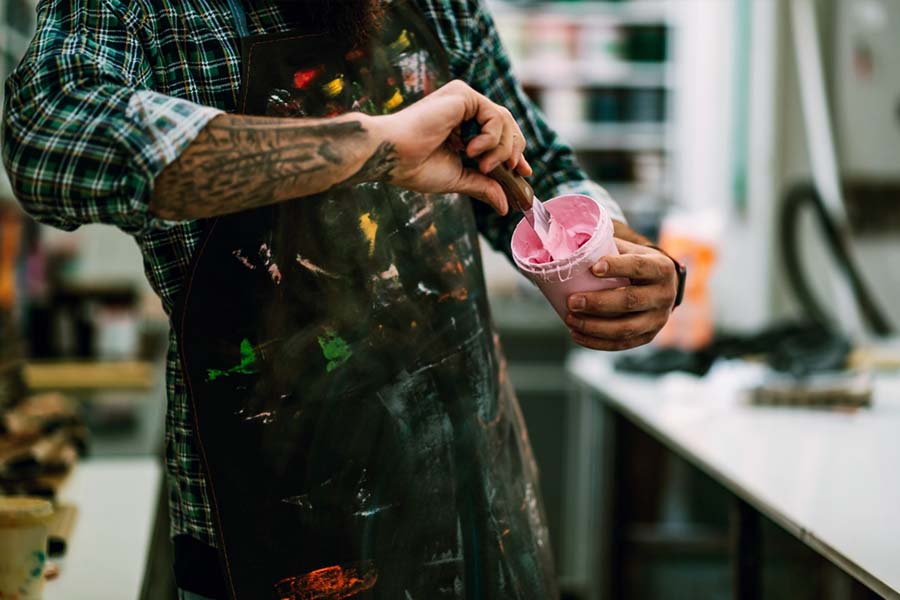
Whether it is plastisol or water-based, inks are a major factor contributing to the beauty of the print design. Therefore, taking proper care and storage of your inks will save you money and extend their lifespan. So, how to store screen printing inks to prevent them from losing some of their printing properties?
Stay with us as we give you some tips to help you take care of your ink during print screening and how to store it properly.
How to Store Screen Printing Inks
So, how to store screen printing inks? Taking care of the print screening equipment guarantees a quality product and will save you from unnecessary headaches. Namely, the production process mostly depends on the condition of the ink, regardless of whether it is a single product or wholesale screen printing shirts with high-quality ink. Fortunately, there are some useful tips to help you preserve your printing equipment, especially printing ink:

Pay attention to the temperature
So, what are the screen printing ink storage temperatures you should pay attention to? Generally speaking, screen printing ink should be stored in a room where the temperature is between 65 and 90 degrees Fahrenheit. Increased or decreased values of this range can negatively affect the quality of the ink.
If the ink container is stored at a temperature higher than 90 degrees, the ink will begin to gel and will be unusable for your next print.
The same applies to the room with less than 65 degrees. In this case, the ink will likely lose its consistency or, in some cases, freeze. Therefore, before storing the screen printing ink, check the room temperature, especially during extremely hot or cold days.
Store away from sunlight
Although you have stored the ink container in a temperature-controlled room, the sun’s rays can affect the texture and reduce the quality of the screen printing ink. Make sure the ink is stored away from windows. Besides direct sunlight, avoid storing ink containers next to walls exposed to a lot of sun during hot summers as it can lead to a loss of ink quality.
Apart from the printing ink, avoid buying an ink bucket that’s been exposed to sun rays.
Keep the stir sticks and scoops out of the ink container
It must have happened to you to forget the stir sticks and scoops in the ink bucket due to increased production. Although it seems like a completely unnecessary step, such a move can negatively affect the quality of the screen printing ink.
Such accessories, especially if made of cardboard or wood, can affect the functionality and texture of the ink. Namely, such absorbent materials can absorb the plasticizer from the ink. In this way, you will disturb the ratio of the ink to the plasticizer, ultimately affecting the quality of the printed product.
Ink care during production
When we think of correct ink grading, we also consider the wrinkle during production. Therefore, putting the lids back on the bins as soon as you have finished using the ink is always a good idea.
This move will prevent lint and dust from entering the room, which can contaminate the ink. Also, ensure your ink is stored away from heat-generating machines like the flash cure unit and conveyor belt. The heat from these machines can cause the ink to harden and become partly unusable.
Another practice you should follow is regular stir before using the screen printing ink. Stirring before use will ensure that the ink is free of irregularities and even the texture.
Don’t forget to take care of unused screen printing ink as well. To store it properly, use a specially marked bin and place it in a safe, temperature-controlled place.

Conclusion
In conclusion, we hope you learned how to store screen printing inks and what measures to take to maintain their quality. Taking care of your screen printing ink will ensure you get a high-quality product, saving you time and money in the long term. If you have any further questions about the proper storage of print screening ink, please do not hesitate to contact us. In addition, if you have a design ready and want to leave the production process to professionals, turn to Thrive Screen Printing. Our team will be more than happy to help.

Robert Fisher is the founder and CEO of Thrive Screen Printing and brings extensive experience in the screen printing and fulfillment industry.

